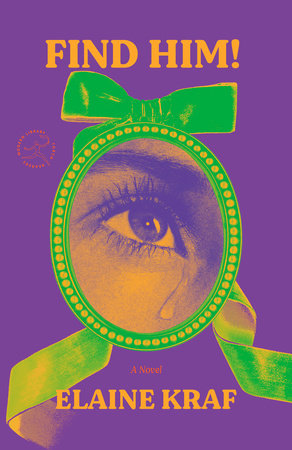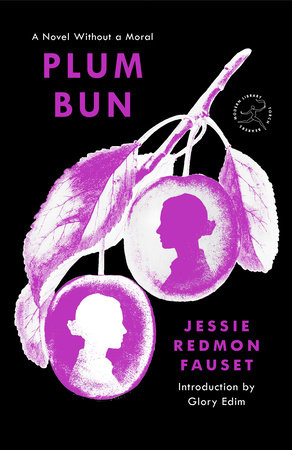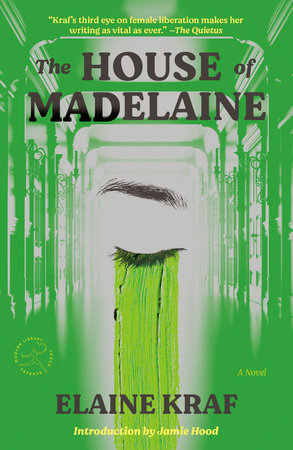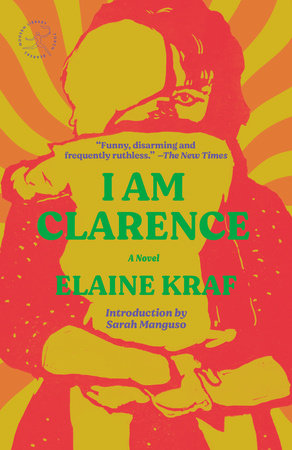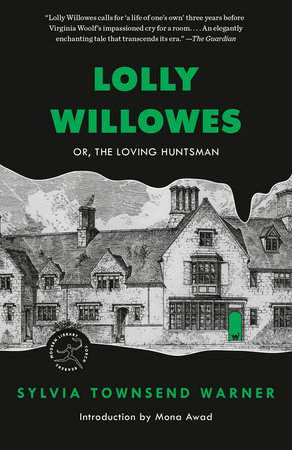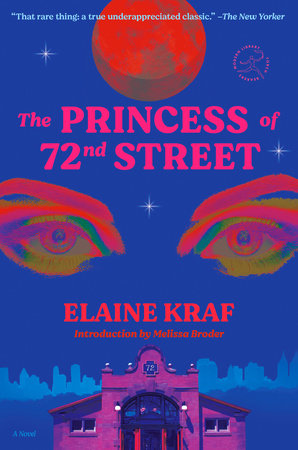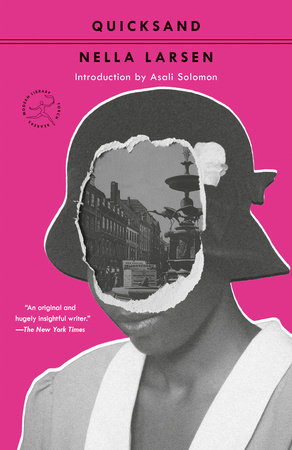Excerpt
The Yellow Wall-Paper and Other Writings
Chapter 1The Yellow Wall-paperIt is very seldom that mere ordinary people like John and myself secure ancestral halls for the summer.
A colonial mansion, a hereditary estate, I would say a haunted house, and reach the height of romantic felicity—but that would be asking too much of fate!
Still I will proudly declare that there is something queer about it.
Else, why should it be let so cheaply? And why have stood so long untenanted?
John laughs at me, of course, but one expects that in marriage.
John is practical in the extreme. He has no patience with faith, an intense horror of superstition, and he scoffs openly at any talk of things not to be felt and seen and put down in figures.
John is a physician, and perhaps—(I would not say it to a living soul, of course, but this is dead paper and a great relief to my mind—) perhaps that is one reason I do not get well faster.
You see he does not believe I am sick!
And what can one do?
If a physician of high standing, and one’s own husband, assures friends and relatives that there is really nothing the matter with one but temporary nervous depression—a slight hysterical tendency—what is one to do?
My brother is also a physician, and also of high standing, and he says the same thing.
So I take phosphates or phosphites—whichever it is, and tonics, and journeys, and air, and exercise, and am absolutely forbidden to “work” until I am well again.
Personally, I disagree with their ideas.
Personally, I believe that congenial work, with excitement and change, would do me good.
But what is one to do?
I did write for a while in spite of them; but it does exhaust me a good deal—having to be so sly about it, or else meet with heavy opposition.
I sometimes fancy that in my condition if I had less opposition and more society and stimulus—but John says the very worst thing I can do is to think about my condition, and I confess it always makes me feel bad.
So I will let it alone and talk about the house.
The most beautiful place! It is quite alone, standing well back from the road, quite three miles from the village. It makes me think of English places that you read about, for there are hedges and walls and gates that lock, and lots of separate little houses for the gardeners and people.
There is a delicious garden! I never saw such a garden—large and shady, full of box-bordered paths, and lined with long grape-covered arbors with seats under them.
There were greenhouses, too, but they are all broken now.
There was some legal trouble, I believe, something about the heirs and co-heirs; anyhow, the place has been empty for years.
That spoils my ghostliness, I am afraid, but I don’t care—there is something strange about the house—I can feel it.
I even said so to John one moonlight evening, but he said what I felt was a draught, and shut the window.
I get unreasonably angry with John sometimes. I’m sure I never used to be so sensitive. I think it is due to this nervous condition.
But John says if I feel so, I shall neglect proper self-control; so I take pains to control myself—before him, at least, and that makes me very tired.
I don’t like our room a bit. I wanted one downstairs that opened on the piazza and had roses all over the window, and such pretty old-fashioned chintz hangings! but John would not hear of it.
He said there was only one window and not room for two beds, and no near room for him if he took another.
He is very careful and loving, and hardly lets me stir without special direction.
I have a schedule prescription for each hour in the day; he takes all care from me, and so I feel basely ungrateful not to value it more.
He said we came here solely on my account, that I was to have perfect rest and all the air I could get. “Your exercise depends on your strength, my dear,” said he, “and your food somewhat on your appetite; but air you can absorb all the time.” So we took the nursery at the top of the house.
It is a big, airy room, the whole floor nearly, with windows that look all ways, and air and sunshine galore. It was nursery first and then playroom and gymnasium, I should judge; for the windows are barred for little children, and there are rings and things in the walls.
The paint and paper look as if a boys’ school had used it. It is stripped off—the paper—in great patches all around the head of my bed, about as far as I can reach, and in a great place on the other side of the room low down. I never saw a worse paper in my life.
One of those sprawling flamboyant patterns committing every artistic sin.
It is dull enough to confuse the eye in following, pronounced enough to constantly irritate and provoke study, and when you follow the lame uncertain curves for a little distance they suddenly commit suicide—plunge off at outrageous angles, destroy themselves in unheard of contradictions.
The color is repellant, almost revolting; a smouldering unclean yellow, strangely faded by the slow-turning sunlight.
It is a dull yet lurid orange in some places, a sickly sulphur tint in others.
No wonder the children hated it! I should hate it myself if I had to live in this room long.
There comes John, and I must put this away,—he hates to have me write a word.
We have been here two weeks, and I haven’t felt like writing before, since that first day.
I am sitting by the window now, up in this atrocious nursery, and there is nothing to hinder my writing as much as I please, save lack of strength.
John is away all day, and even some nights when his cases are serious.
I am glad my case is not serious!
But these nervous troubles are dreadfully depressing.
John does not know how much I really suffer. He knows there is no reason to suffer, and that satisfies him.
Of course it is only nervousness. It does weigh on me so not to do my duty in any way!
I meant to be such a help to John, such a real rest and comfort, and here I am a comparative burden already!
Nobody would believe what an effort it is to do what little I am able,—to dress and entertain, and order things.
It is fortunate Mary is so good with the baby. Such a dear baby!
And yet I cannot be with him, it makes me so nervous.
I suppose John never was nervous in his life. He laughs at me so about this wall-paper!
At first he meant to repaper the room, but afterwards he said that I was letting it get the better of me, and that nothing was worse for a nervous patient than to give way to such fancies.
He said that after the wall-paper was changed it would be the heavy bedstead, and then the barred windows, and then that gate at the head of the stairs, and so on.
“You know the place is doing you good,” he said, “and really, dear, I don’t care to renovate the house just for a three months’ rental.”
“Then do let us go downstairs,” I said, “there are such pretty rooms there.”
Then he took me in his arms and called me a blessed little goose, and said he would go down cellar, if I wished, and have it whitewashed into the bargain.
But he is right enough about the beds and windows and things.
It is an airy and comfortable room as any one need wish, and, of course, I would not be so silly as to make him uncomfortable just for a whim.
I’m really getting quite fond of the big room, all but that horrid paper.
Out of one window I can see the garden, those mysterious deep-shaded arbors, the riotous old-fashioned flowers, and bushes and gnarly trees.
Out of another I get a lovely view of the bay and a little private wharf belonging to the estate. There is a beautiful shaded lane that runs down there from the house. I always fancy I see people walking in these numerous paths and arbors, but John has cautioned me not to give way to fancy in the least. He says that with my imaginative power and habit of story-making, a nervous weakness like mine is sure to lead to all manner of excited fancies, and that I ought to use my will and good sense to check the tendency. So I try.
I think sometimes that if I were only well enough to write a little it would relieve the press of ideas and rest me.
But I find I get pretty tired when I try.
It is so discouraging not to have any advice and companionship about my work. When I get really well, John says we will ask Cousin Henry and Julia down for a long visit; but he says he would as soon put fireworks in my pillow-case as to let me have those stimulating people about now.
I wish I could get well faster.
But I must not think about that. This paper looks to me as if it knew what a vicious influence it had!
There is a recurrent spot where the pattern lolls like a broken neck and two bulbous eyes stare at you upside down.
I get positively angry with the impertinence of it and the everlastingness. Up and down and sideways they crawl, and those absurd, unblinking eyes are everywhere. There is one place where two breadths didn’t match, and the eyes go all up and down the line, one a little higher than the other.






